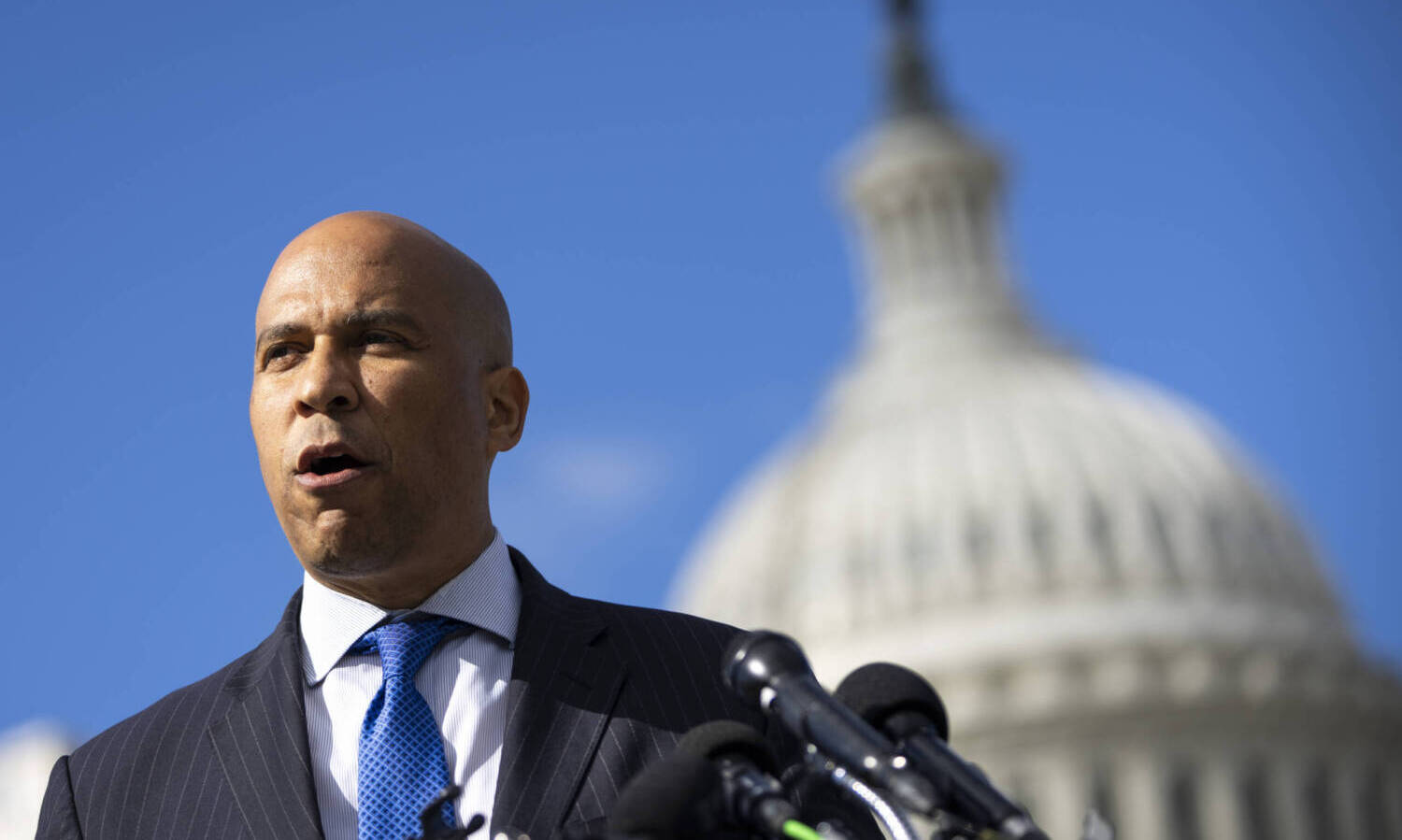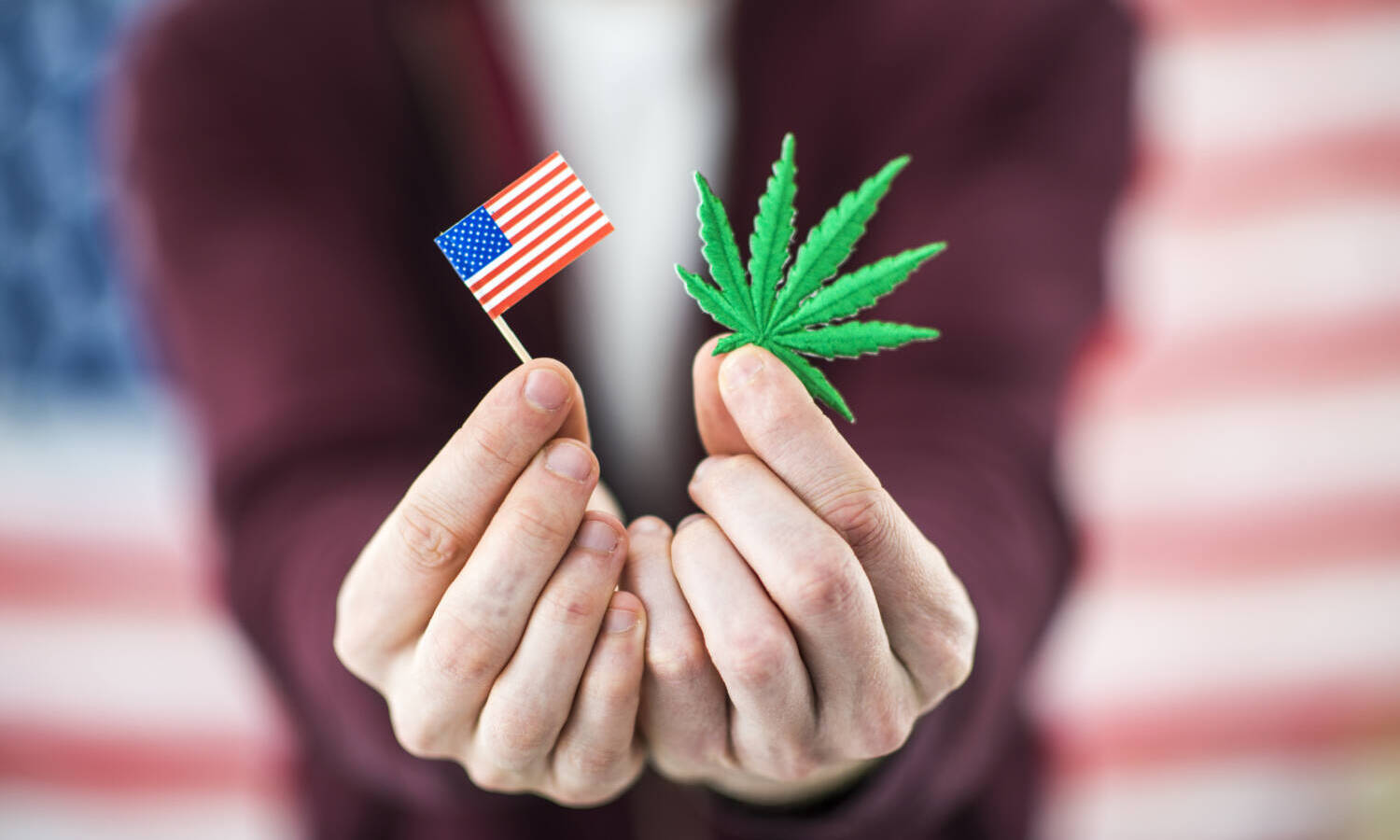
Federal cannabis ban has failed, Senator Booker says during Senate hearing
Through
The Senate Judiciary’s Crime and Terrorism Subcommittee, chaired by Sen. Cory Booker (D-NJ), on Tuesday held a hearing entitled “Federal Cannabis Decriminalization: Necessary Steps to Address Previous Harms.”
The meeting followed last week’s presentation of a long-awaited marijuana law — the Cannabis Administration And Opportunity Act (CAOA) — that would decriminalize and de-schedule cannabis at the federal level while promoting social justice. Booker sponsored the bill along with Senate Majority Leader Chuck Schumer and Senator Ron Wyden (D-OR).
US Senate Majority Leader Charles Schumer (D-NY) (C), along with Sen. Cory Booker (D-NJ) (L) and Sen. Ron Wyden (D-OR) / Photo by Kevin Dietsch/Getty Images
RELATED: Schumer, Booker and Wyden Unveil Cannabis Legalization Bill — Here’s What’s Inside
The hearing covered many important issues related to the legalization of cannabis at the federal level, but there was no actual debate on the bill as the subcommittee has yet to vote on the CAOA.
Booker ushered in the Senate hearing on cannabis, in which he pushed for the end of federal marijuana prohibition, claiming that “federal cannabis prohibition has failed,” NJ.com reported.
Booker cited evidence that the current classification of cannabis as a Schedule 1 drug has caused much harm.
“It has failed to make our communities safer, it has failed to reflect modern science and contemporary values across the political spectrum, and it has failed miserably for our most vulnerable people in America,” Booker said. “Really, it has done a lot of damage to families in our country.”
Others disagreed
Sen. Tom Cotton (R-AR) challenged Booker’s claims that the federal ban on cannabis disproportionately affected blacks and other minorities.
“The marijuana legalization movement is plagued by misinformation, much of which somehow found itself in the Chairman’s opening remarks,” Cotton said. “Federal marijuana laws are not a matter of racial justice, and federal prisons are not filled with low-ranking, non-violent drug owners.”
Former Deputy Assistant Attorney General Steven Cook also argued that racism does not exist in the criminal justice system and that law enforcement is primarily focused on large-scale drug trafficking rather than personal use.
“Unsubstantiated claims that the criminal system is systemically racist are destructive,” Cook said. “You are undermining public confidence in the best criminal justice system in the world and fueling division at a time when our nation desperately needs leaders to do the opposite.”
The system is to blame
dr Malik Burnett, medical director of the Center for Harm Reduction Services at the Maryland Department of Health, noted that this was more of a “systematic racial issue.” Children from low-income communities often cannot afford attorneys or other resources when police implicate them. “This is the system and the way it’s designed,” Burnett said.
Annapolis, Maryland Police Chief Edward Jackson agreed with Booker, saying, “Across the country, people – including the police – recognize that there is nothing inherently violent in the sale, possession or use of cannabis; Bans encourage violence and crime, not cannabis.”
“All of these implications of cannabis prohibition have hit communities of color especially hard because cannabis laws are only enforced in certain neighborhoods,” he said.
 Photo by FatCamera/Getty Images
Photo by FatCamera/Getty Images
The need for a SAFE Banking Act is clear
Also discussed during the hearing was another bill that many industry experts believe has the best chance of reaching President Joe Biden’s desk, the Secure and Fair Enforcement, or SAFE, Banking Act.
So far, the SAFE Banking Act has made it through the US House of Representatives six times in the last three years, and lately the Senate has been under a lot of pressure to approve it.
RELATED: This Senator Says Congress Must Keep Up with Americans and Pushes Cannabis Banking Reform Bill
A hearing on the bill is scheduled for Wednesday on Capitol Hill and will be attended by congressional supporters and industry professionals at risk of robbery because they primarily operate in cash. Among those who will speak is Dennis Brown, who lost his son in a robbery at the pharmacy he worked for in March.
While Booker is solely opposed to passage of the SAFE Banking Act, Burnett affirmed during the hearing that “the need for legislation like the SAFE Banking Act is clear” for fear of not administering restorative justice afterward.
After the hearing, Booker told NJ Advance Media that he is speaking with other lawmakers about legislation that includes both SAFE banking and restorative justice.
“I’ve always understood the urgency of SAFE banking, but strategically I want people to know that if we just do SAFE banking, we may never see restorative justice again, at least not in the short term,” Booker said. “The opportunity to receive SAFE Banking combined with the principles of Restorative Justice is an achievable effort for me.”
This article originally appeared on Benzinga and has been republished with permission.

Post a comment: